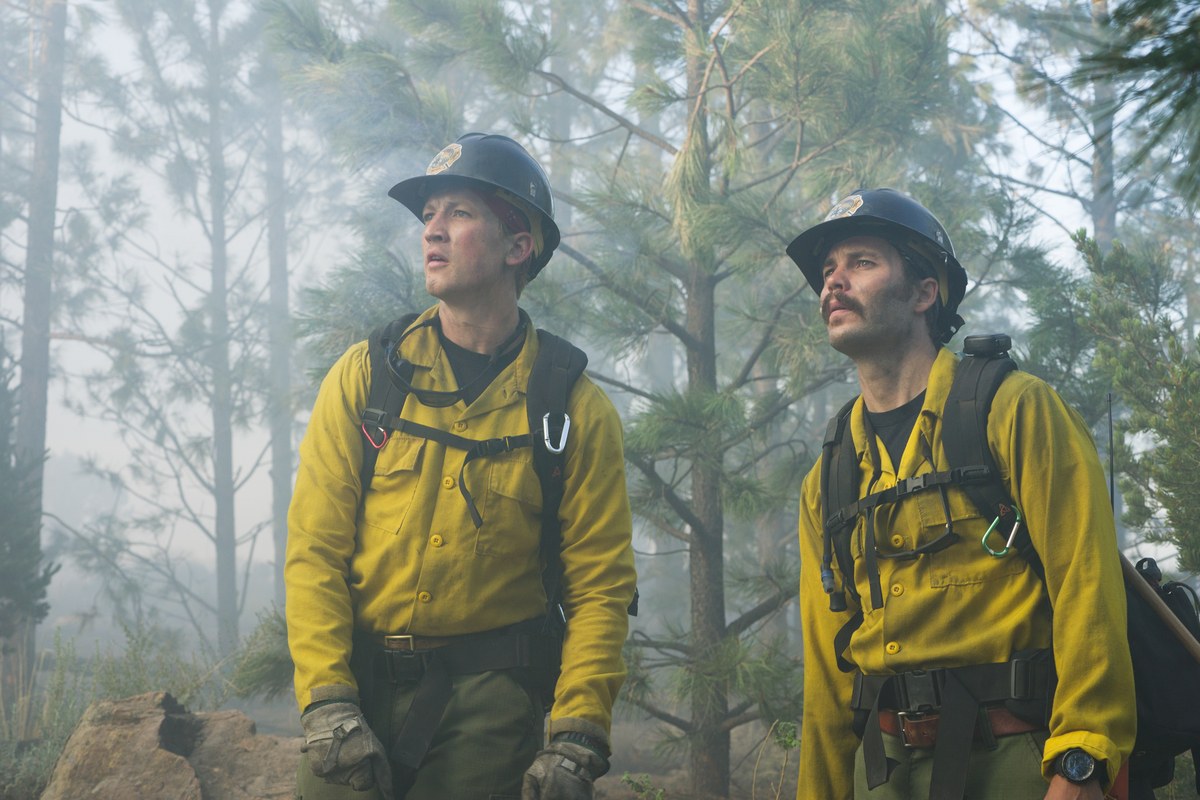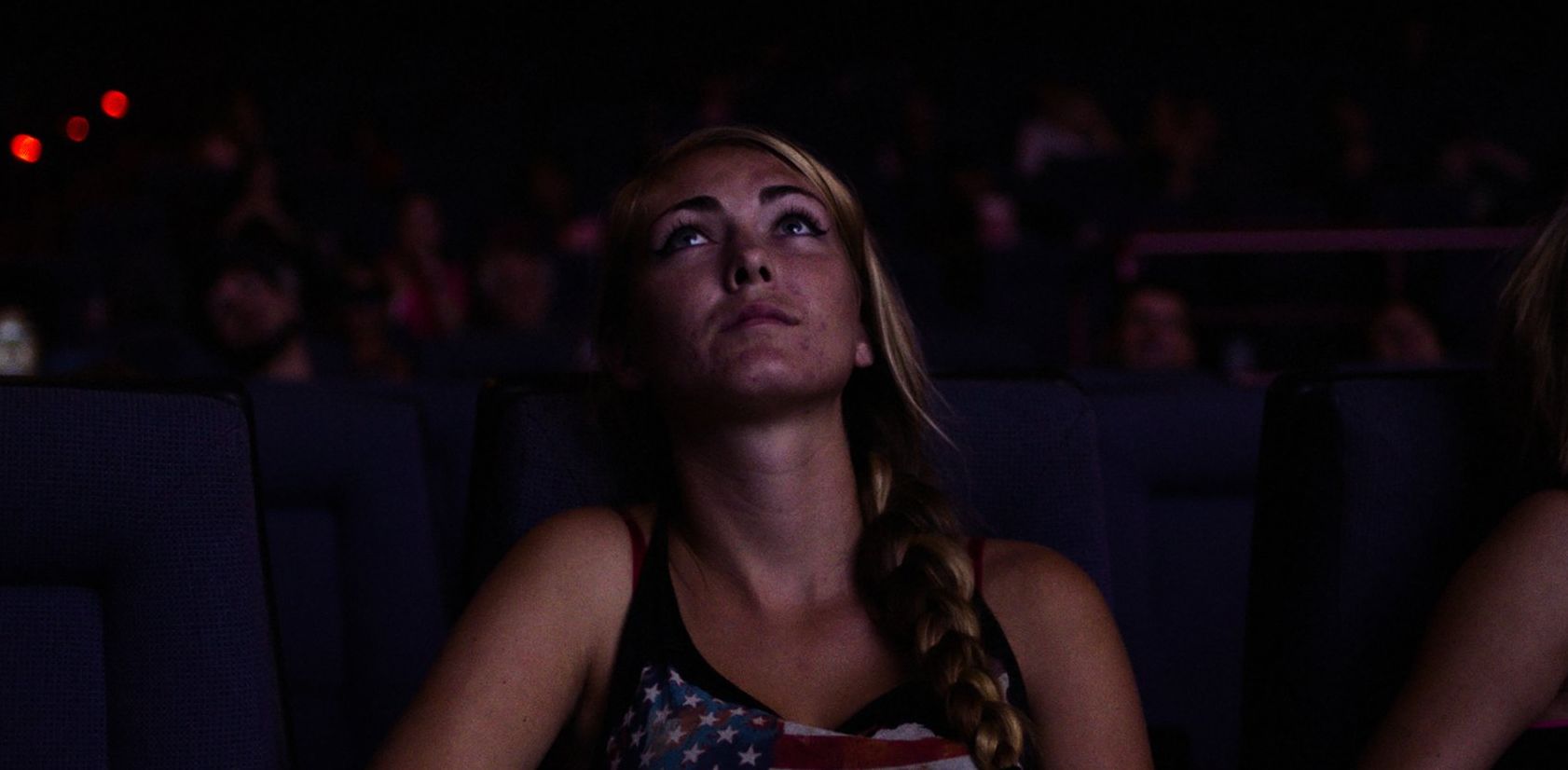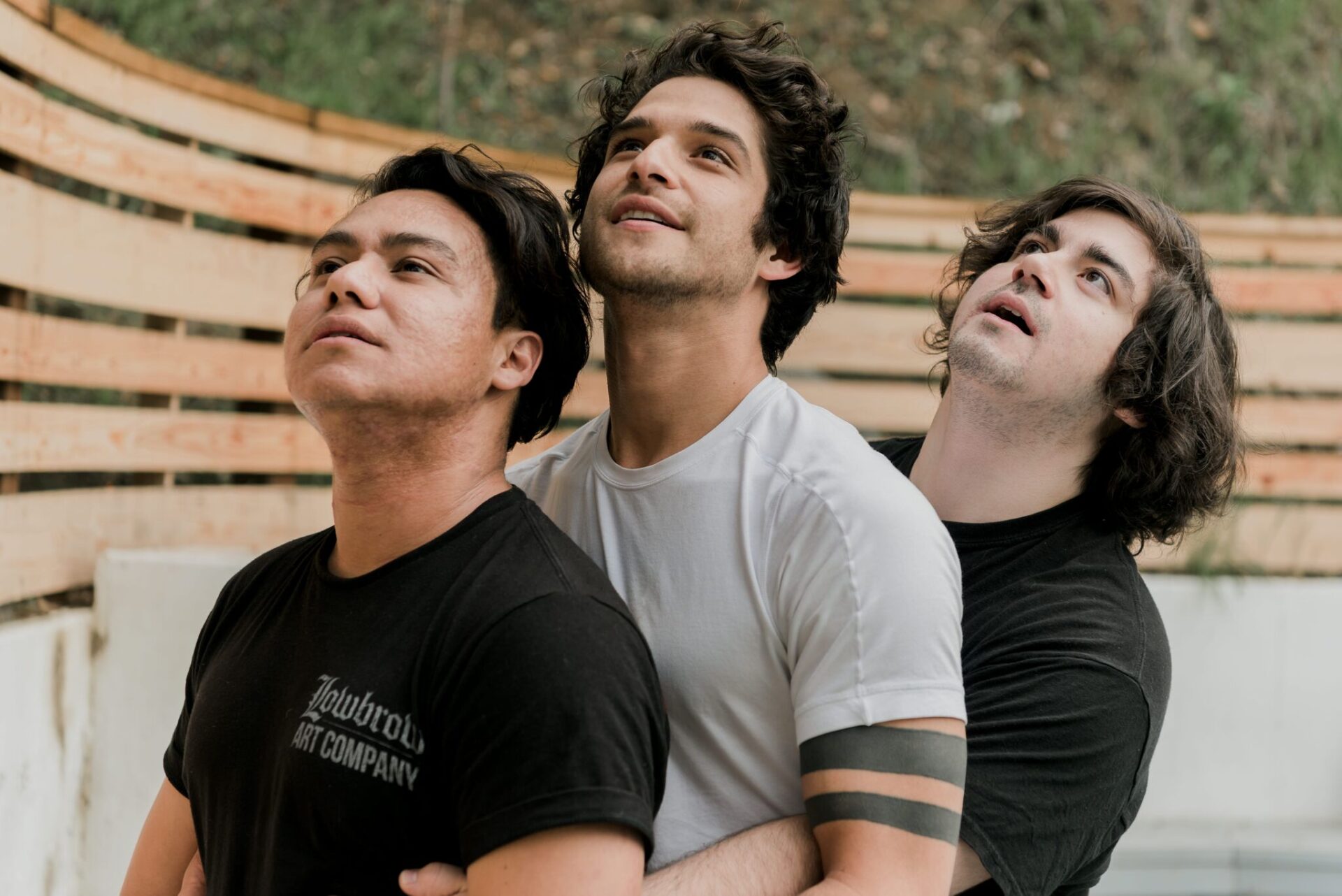There’s merit to be gleaned from the male weepie, as some refer to it, films like Brian’s Song or Ladder 49, where the male characters all go through some sort of shared trauma, usually involving a well-known occupation like firefighter or football player. Only the Brave is cut from the same cloth but wants to try to shake up formula in a few ways, only to dive back into convention and unearned dramatics. Director Joseph Kosinski may have brought his unmistakable visual sense to the proceedings but most of it gets sunk under a commitment to honoring the Granite Mountain Hotshots, a group of firefighters who went up against one of the worst wildfires in history in June of 2013.
We pick up the story with Eric Marsh (Josh Brolin) struggling to get his band of merry misfits certified as official hotshots, the people trained specifically in wildfire suppression tactics. When the danger of wildfires come knocking on the backdoor of their homes in Arizona, the Granite Mountain Hotshots are approved and sent right into fiery blazes. The film follows the emotional and physical tolls their duties as hotshots can take on their personal lives.
Only the Brave rests its effectiveness on its ensemble, which just so happens to be cobbled together by actors and actresses who are more than game for the material. Jeff Bridges is a standout as Duane Steinbrink, the retired Fire Chief who used his clout to make sure Marsh’s outfit got approval to work as official hotshots. The writing is geared towards these moments of big emotions, and performers like Bridges and Brolin know how to deliver the most boilerplate of dialogue.
The writing is also its biggest strength, too. While it teeters into the textbook bro form of dialogue, it’s never used to support these characters. These are all men with their own burden to bear, and while they may seem gaudy and reactive, the dialogue given gives a glimpse into their inner life while immaculately capturing their sense of camaraderie.
A perfect representation of what Only the Brave tries to do comes in the form of how it treats those suffering or recovering from addiction. Brendan McDonough (Miles Teller) is introduced after just smoking some pot. His life is then sent into a tizzy when he finds out he’s going to be a father. After a brief stint in jail for theft, he applies to the hotshots, much to the dismay of a couple of members. Marsh gives him a chance, which is nice. We don’t really know why until closer to the third and final act that Marsh was an addict himself. For a second, goodwill is born from treating addiction as something not criminal in a film so earnest and American. That is until Marsh’s addiction is used to manipulate the audience when there needs to be a reason for drama. Something casual and earned is turned right back into normal drivel.
That isn’t to mention how Only the Brave invests in the characters that aren’t men. Jennifer Connelly thanklessly plays Eric Marsh’s wife who is portrayed as little more than the concerned wife forever fighting to be more important than Eric’s hotshots. The film wants to be about the men and their families but does little to actually focus on the families. Yeah, I get it. At 133 minutes, it’s already way more bloated than it needs to be. Just making a proposition here: when we make these “respect the heroes” kind of films, why don’t we try to craft a more rounded image of the community who supports those heroes? That way things can break more from convention and your big, sprawling moments of sacrifice feel more earned.
If anything, the way the film deals with tragedy is a minor triumph, with the actual tragedy not being exploitative and mainly shown off-screen. The emotions of those affected take the forefront, but again, those emotions are coming from performances shoved to the side in favor of the main players.
Kosinksi’s work is solid, albeit a bit limited here. His strength is in crafting these massive canvases, which you can see by the big-budget effects sequences in way of the actual wildfires. I still hold true to my opinion that he doesn’t know exactly how to deal with genuine human emotion. The biggest dramatic beats delve into Trauma in Cinema 101 technique, like silencing the screams of loved ones to play some sad song over the depressing proceedings. While I admit to getting misty-eyed during the final act, that was more because of the real-life story coming to a head just as a I had anticipated.
Only the Brave is dedicated to giving voice to the voiceless. For those of you that have read the GQ article upon which this film is based, you already know that heartbreak is to come for whomever watches this. There’s a deep dive into the community and their support for the hotshots in the article, one I wish made it into the film. Some tragedies aren’t meant to be compressed and dramatized though, no matter how righteous the cause may seem to be.













